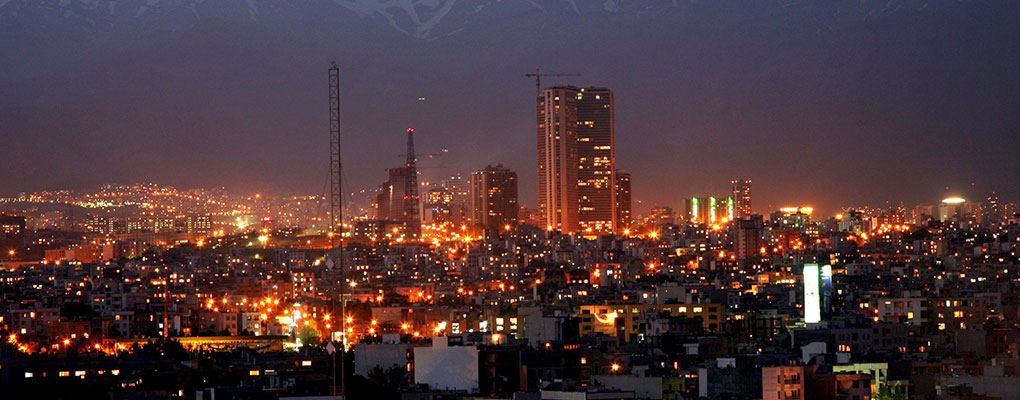
Iran qualifies in many respects to be a good location for foreign investment and doing business. Some of the features of the country which make it a heaven for foreign investors (FIs) include: strategic location, market potentials and proximity, labour privileges, developed infrastructure, low utility and production cost, abundant natural resources, climate conditions and fiscal incentives.
Despite the attractiveness of investment in Iran, in recent years the country was not in a satisfactory situation in respect of foreign investment. The main reason was the international sanctions imposed on Iran over the country’s nuclear issue. However, in recent years – with the new government coming into tenure – the country started negotiations with the P5+1 to solve the long-lasting dispute and to remove the sanctions accordingly. As a result of the negotiations, a preliminary agreement – officially titled the Joint Plan of Action – was made between Iran and the P5+1 group of countries in Geneva, Switzerland, on November 24 2013.
Despite the attractiveness of investment in Iran, in recent years the country was not in a satisfactory situation in respect of foreign investment
After the Geneva interim agreement, many experts predicted that foreign investors would return back to Iran for investment. In recognition of this fact, Sidar Global Advisors reported that, due to the deal, Iran oil sales went up – as well as interest in foreign investment. As predicted beforehand, after the interim agreement many FIs commenced their negotiations with regard to their aimed investment projects in order to be able to start investment in Iran after the final nuclear deal and consequent removal of sanctions.
Finally, On July 14 2015, after years of negotiations and discussions about Iran’s nuclear programme, Iran and its counter parts (China, France, Germany, Russia, the UK and the US) reached an agreement to adopt the Joint Comprehensive Plan of Action (JCPOA).
One of the main consequences of the JCPOA is lifting of the sanctions and allowing for foreign investment. However, potential FIs need to know what have been provided for settlement of disputes arising from foreign investments in Iranian laws and regulations.
On the one hand, many foreign investments made in the past led to disputes due to sanctions. On the other, new foreign investments that are increasing in the light of recent agreement depend on the knowledge of how to resolve the dispute – whereby enabling FIs to predict the future of their investment in case of dispute.
Among different types of foreign investment disputes, disputes between the host government and the FI are the most common. This type of dispute arises from violation of the mutual obligations by one of the parties within the framework of foreign investment.
Investor-state disputes settlement
In order to increase foreign investment in Iran, new foreign investment law, titled ‘Law of Foreign Investment Promotion and Protection’ (FIPPA) – which is currently enforceable – has been approved in 2002. FIPPA is applied to foreign investments that are carried out within its scope. In drafting FIPPA the importance of resolving disputes arising from investments is addressed. As a result, article 19 of FIPPA has been allocated to the settlement of disputes between the FIs and the government.
Article 19 of FIPPA provides that: “Disputes arising between the Government and the foreign investors with regard to their respective mutual obligation within the context of investments under this act, if not settled through negotiations, shall be referred to domestic courts, unless the law ratifying the bilateral investment agreement with the respective government of the foreign investor provides for another method for settlement of disputes.”
With respect to the article 19 of FIPPA, the following points are noticeable:
1) Article 19 of FIPPA includes all types of disputes between the government and the FI arising from investments (i.e. disputes arising out of fair compensation in case of expropriation).
2) Negotiation has been specified by the Iranian legislator as a primary means for settlement of disputes between the government and the FIs in order to be in the same line with international practice. However, the legislator didn’t specify a time period for the negotiation, which may entail conflicts in practice. A period of time should be specified for the negotiation – so if the negotiation doesn’t lead to an agreement within the specified time, the dispute could be settled through other methods (like court and arbitration).
Lacking a time limitation may create problems in practice – however, invoking to good faith rule may be a solution. Parties could continue negotiation as long as they perform such negotiation in good faith, and when one party fails to negotiate in good faith, the other party could refer the dispute to the said authorities.
3) If the parties have not reached an agreement by the negotiation, the dispute will be settled by Iranian domestic courts, unless there is a bilateral investment agreement between the home state of the FI and Iran stipulating another method (like arbitration) for settlement of disputes. Article 19 of FIPPA refers only to the bilateral investment agreements (BITs) and has not mentioned multilateral investment agreements (MIAs); however this cannot affect credibility of the other methods foreseen in the MIAs and does not preclude resorting to MIAs. The reason is MIAs have international credibility and their violation leads to international responsibility of the breaching party.
Finally, it should be noted – as article 19 of FIPPA is one the most important provisions with regard to investor-state disputes settlement in the mainland of Iran – in entering into investment contracts with Iran, FIs should also consider other related laws and regulations such as foreign investment treaties between Iran and their home countries, Article 139 of The Constitution law and Free trade and special economic zones laws and regulations.
Ali Darzi is a legal and contracts specialist at Shahid Bahonar Copper Industries Company
For further information, email a.darzi@yahoo.com


